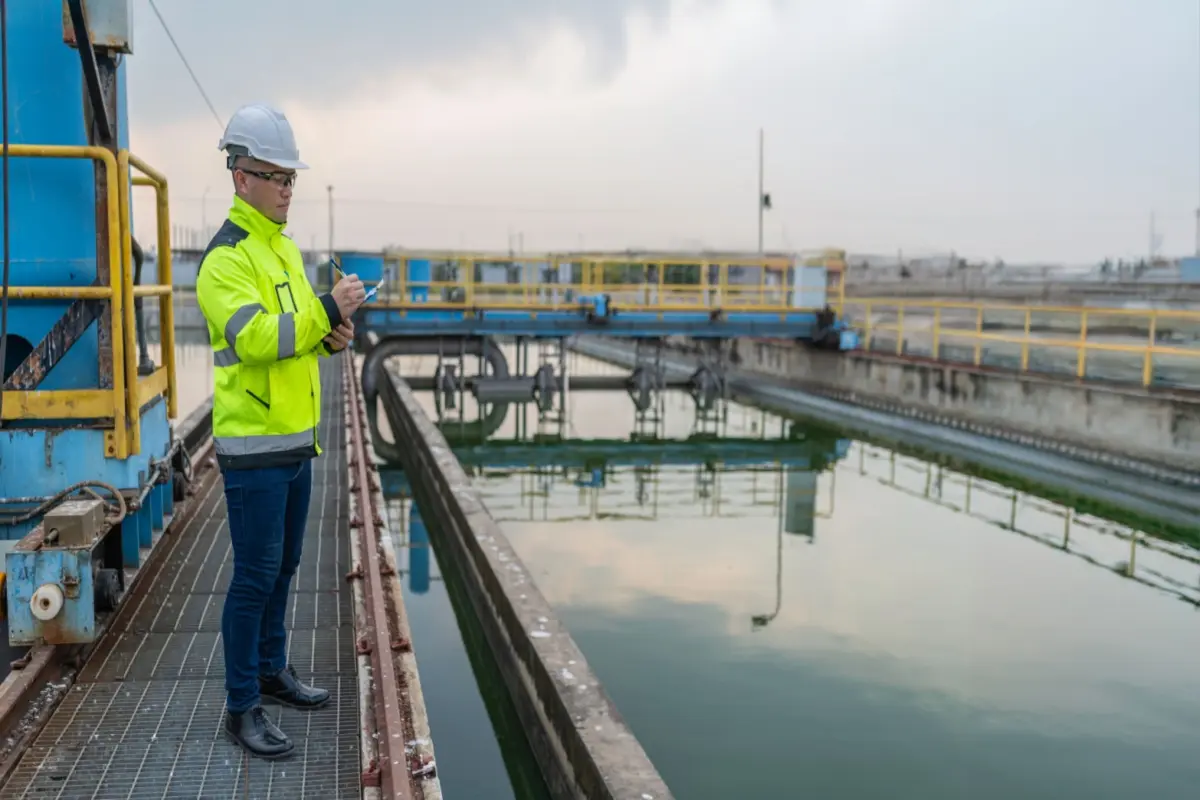Is a Career in Public Utilities a Good Path in 2025?
Those contemplating their next career move should look closer at the public utilities sector.
Beyond stability and excellent pay, a career in public utilities is a good option for people who want to impact their community positively. With growing investments in sustainability and infrastructure modernization, working for a utility company is one of this decade’s most intelligent career choices.
What Is Public Utilities?
Public utilities refer to common carriers and organizations providing services indispensable to modern life, including electricity, water supply, waste management, etc. This is the backbone of contemporary society, ensuring everything runs and functions smoothly across the communities.
Unsurprisingly, such a vital field requires highly qualified professionals, keeping demand consistently strong, especially as infrastructure continues to change and expand. Professionals in this sector are in high demand, driven by constant infrastructure upgrades and the expansion of renewable energy sources.

The U.S. Bureau of Labor Statistics (BLS) described the promising nature of a career within this industry. For example, the average hourly earnings for November 2024 were $52.03. Surprisingly, this rate is significantly higher than in other sectors like education and health services, where the average hourly earnings make just $34.93 for the given period.
Recommended Reading: Is Healthcare a Good Career Path?
What Companies Are in the Public Utilities Field?
Public utility companies range from local municipal service providers to multinational energy corporations, each contributing to the people’s well-being.
Below is a list of public utilities, leading names, and their impact in the field.
Companies in Water Utilities
- American Water is a national public utility company that serves approximately 1,700 communities in 14 states and provides more than 14 million people with a clear water supply.
- American States Water Company is a California-based service provider that is well-known for its consistent growth and community-oriented project investments.
- California Water Service Group, also known as Cal Water, is the country’s third largest water service provider, serving roughly two million people across states.
Companies in Energy Utilities
- NextEra Energy is the world’s largest utility provider, providing clean electricity to millions of homes and businesses.
- Duke Energy is another leading electric power holding company, serving over 8.2 million people with renewable and sustainable energy.
- Dominion Energy delivers electricity and natural gas services to nearly 3.6 million customers and is recognized for its ongoing solar projects.
Top 12 Competitive Jobs in Public Utilities
Is public utilities a good career path?
The answer to this question lies in studying some of the best-paying jobs in public utilities. Below, you can find key information on job responsibilities, up-to-date and average salary expectations, and the skills you’ll need to succeed in this vibrant field.
#1 Power Plant Operator
Average Salary: $83,978 per year
Skills Needed: Technical expertise, mechanical aptitude, crisis-management capabilities, and strong attention to detail.
Electric plant or power plant operators manage and oversee electricity facilities to ensure uninterrupted power delivery to millions of communities. Some of their key responsibilities include operating turbines, generators, and builders. Operators perform detailed routine inspections to prevent any potential outages or disruptions. Adherence to safety standards is essential. Therefore, they should always stay updated on regulations and operational best practices.
Power plant operators often work in shifts, requiring 24/7 coverage to maintain a stable power grid. Yet, this is one of the best-paying jobs in public utilities, especially ideal for people who enjoy dealing hands-on with advanced machinery and can solve complex professional problems on the spot.
#2 Electrical Engineer
Average Salary: $103,852 per year
Skills Needed: Analytical and problem-solving mindset, proficiency in electrical software, and strong teamwork.
Electrical engineers are at the forefront of designing, developing, and optimizing electrical systems. Their specialization in planning and managing electrical infrastructure projects makes them irreplaceable across renewable energy installations and legacy grid modernization.
Electrical engineers collaborate closely with other cross-functional teams, such as technicians, project managers, and contractors, to create detailed schematics and ensure compliance with industry standards. Additionally, they oversee testing and troubleshooting processes with a strong focus on integrating renewable and smart-grid energy sources into existing infrastructures.
#3 Water Resources Engineer
Average Salary: $82,153 per year
Skills Needed: Environmental knowledge, excellent communication skills, analytical thinking, and proficiency in regulatory compliance.
Water resource engineers play a crucial role in monitoring and maintaining the water supply in the region. Some of their primary responsibilities include analyzing water usage, monitoring the quality standards, and developing efficient allocation strategies to spread the resources across multiple communities. Water resource engineers work closely with environmental specialists and municipal authorities to implement conservation initiatives and design effective water treatment processes.
Due to the constantly growing populations and climate changes, these specialists have become increasingly indispensable. They are expected to have passion and deep knowledge of public health and sustainable resource management to reach success in this role.
#4 Natural Gas Technician
Average Salary: $52,295 per year
Skills Needed: Technical training, attention to safety regulations, mechanical skills, and customer-centric behavior.
Gas technicians focus on delivering natural gas safely to residential, commercial, and industrial sectors. Their main job is to install, maintain, and inspect pipelines and gas distribution equipment. Technicians also implement routine checks to ensure leak detection and provide quick response to emergencies. Their work significantly influences community safety and comfort, so handling sensitive equipment and conducting system pressure tests requires mechanical aptitude and attention to detail.
#5 Wastewater Operator
Average Salary: $44,923 per year
Skills Needed: Mechanical skills, preventive and routine maintenance, analytical mindset, and adherence to safety procedures.
Wastewater operators control the safe release of wastewater back into the environment. Some of their daily tasks include monitoring and adjusting chemical treatments and working with filtration equipment to ensure everything complies with environmental and health standards.
Their work requires continuous training and knowledge updates to get acquainted with wastewater treatment technologies and regulatory changes. Working for a utility company as a wastewater treatment operator provides stable employment and a chance to contribute to environmental conservation and public health.
#6 Line Installer and Repairer
Average Salary: $85,420 per year
Skills Needed: Good physical condition and strength, safety awareness, prompt troubleshooting, and teamwork skills.
Safety is paramount for line installers, as their job typically requires working with high-voltage electrical power lines and related equipment. They spend most of their time outdoors and often at significant heights conducting regular inspections, fixing power lines between poles and towers, etc.
Electrical line installers and repairers should have a good grasp of specialized equipment like buck trucks, climbing gear, and diagnostic tools to respond promptly during outages. They often work irregular and overtime hours, required to restore power during emergency breakouts. With this in mind, comfort with heights and a proactive approach to work are key to becoming a good line installer.
#7 Hydrologist
Average Salary: $67,555 per year
Skills Needed: Advanced research skills, analytical thinking, environmental expertise, and highly effective communication skills.
Hydrologists work closely with environmental planners, engineers, and policymakers to study the distribution and movement of water resources across the environment. Their goal is to ensure sustainable water resource management within communities and ecosystems. Using advanced modeling software, they can simulate hydrologic conditions to predict water availability during flooding or drought.
Due to their deep environmental knowledge and reporting skills, hydrologists often participate in local and global conferences, work on developing scientific methodologies, and contribute to more proactive resource management.
#8 Solar Photovoltaic (PV) Installer
Average Salary: $73,430 per year
Skills Needed: Physical stamina and dexterity, electrical knowledge, attention to detail, and safety awareness.
Solar PV installers work with solar power systems on residential, commercial, and industrial properties. Their daily routine includes assembling, mounting, and wiring solar panels and testing the electrical systems to ensure maximum performance. They spend most of their time outdoors, often on rooftops, so having good physical conditions and adherence to safety protocols is essential.
Besides installations, they also should educate customers about the solar system and provide recommendations for maximizing the energy output.
#9 Utility Inspector
Average Salary: $70,000 per year
Skills Needed: Strong observational and investigational skills, communication, and ability to handle emergencies.
Utility inspectors work at utility facilities, distribution networks, and project sites to prevent accidents and service disruptions. Comprehensive inspections and risk assessments help them create a safe workplace corresponding to regulatory and industry standards. They also thoroughly investigate accidents and incidents to document cases and create preventive mechanisms.
Communication and teamwork skills are essential for utility inspectors, as their primary duties include reporting to the management teams and regulatory bodies and preparing their colleagues for emergency procedures.
#10 Geographic Information Systems (GIS) Specialist
Average Salary: $66,159 per year
Skills Needed: Knowledge of GIS mapping software, strong analytical and spatial reasoning abilities, database management proficiency, communication, and accuracy skills.
GIS specialists manage geographic information systems. Their responsibilities include mapping, analyzing, and visualizing utility infrastructure assets like water pipelines, electric grids, and gas distribution systems. This means collecting and interpreting geographic data to create detailed area maps and developing emergency strategies.
They often collaborate with field technicians and other cross-functional teams to provide analytical support and properly distribute all the networks.
#11 Energy Auditor
Average Salary: $104,000 per year
Skills Needed: Knowledge of energy efficiency standards, energy conservation, HVAC, and strong reporting and analytical skills.

Energy auditors conduct thorough inspections of buildings and facilities to identify energy consumption patterns and improve efficiency. Their primary responsibilities include working with specialized equipment to measure air leakage and energy usage and monitoring the work of HVAC systems and electrical appliances.
This role requires excellent technical proficiency and analytical skills to shape environmentally friendly and responsible energy consumption practices. They often report to the company managers advising on adopting sustainable energy practices and efficiency upgrades.
#12 Radiation Safety Officer
Average Salary: $101,336 per year
Skills Needed: Comprehensive understanding of safety regulations, emergency response and crisis management, record-keeping capabilities, and collaborative work.
Conducting regular inspections and assessing radiation hazards, these people monitor radiation levels and implement safety protocols to protect workers and the communities. Radiation safety is paramount, as officers should develop prevention mechanisms to avoid accidental exposure and environmental contamination. Their work depends on agencies like the Nuclear Regulatory Commission (NRC), which creates strict standards and workflows.
Is a Career in Public Utilities a Good Choice?
Each job described above underlines the commitment and dedication one should have toward the community to succeed in this sector. Public utilities offer competitive salaries and growth potential. If your calling is to contribute to your community and build a sustainable environment, choosing a career path in utilities will be rewarding.
Those still thinking of other promising industries may also want to read our detailed guide on whether business services is a good career choice for your goals.